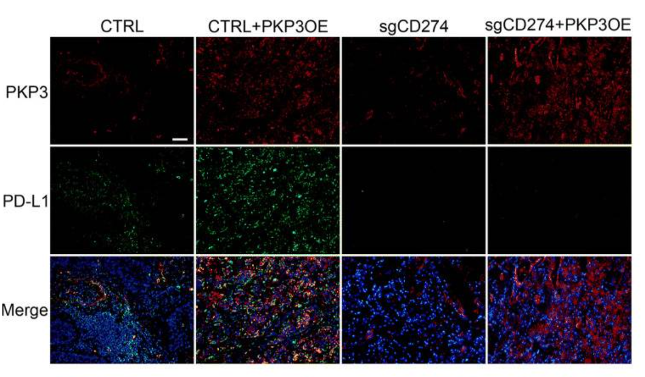This is a knockout-validated antibody summary, based on publications "N 6-methyladenosine-modified circIGF2BP3 inhibits CD8 + T-cell responses to facilitate tumor immune evasion by promoting the deubiquitination of PD-L1 in non-small cell lung cancer", as cited below [1], and "Irradiation combined with PD-L1-/- and autophagy inhibition enhances the antitumor effect of lung cancer via cGAS-STING-mediated T cell activation" for western blot knockout validation (figure 5e) [2]. Labome curates formal publications to compile a list of antibodies with unambiguous specificity within Validated Antibody Database (VAD).

Rabbit monoclonal IgG
Company: Abcam
Antibody: PD-L1
Catalog number: ab213480
Summary: Rabbit monoclonal antibody against a recombinant fragment of mouse PD-L1. Reacts with mouse by western blot, immunoprecipitation, immunocytochemistry/immunofluorescence. Unsuitable for immunohistochemistry (paraffin).
Immunohistochemistry
Control and CD274-KO LLC cell tumors.
5% BSA with 0.1% Triton X-100 for 1h at room temperature.
At 4°C overnight.
Anti-rabbit Alexa Fluor 647/Alexa Fluor 488, Abcam) for 2h at room temperature.
Fluorescence microscopy (Olympus, Tokyo, Japan).
- If you are aware of any publication with knockout studies validating a monoclonal or recombinant antibody, either purchased from a supplier or developed by the author(s), please notify us through feedback.
